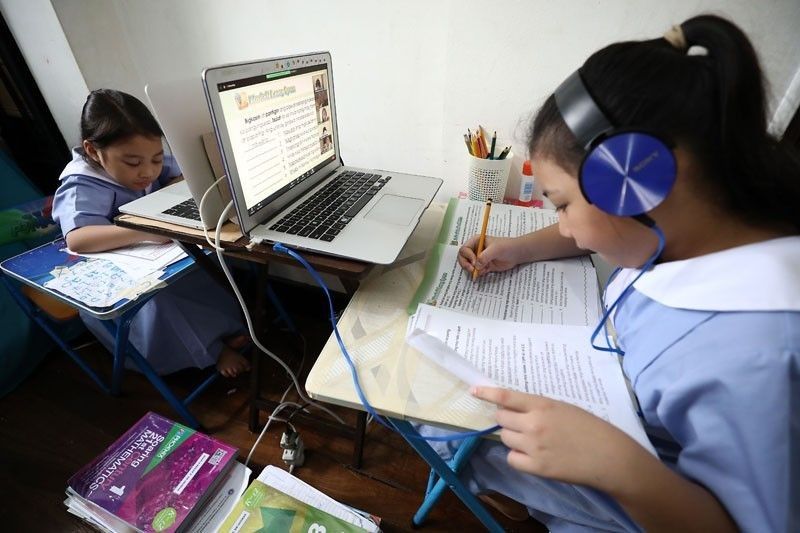DepEd says blended learning to be institutionalized

MANILA, Philippines — The Department of Education has finalized its plan to make blended learning a permanent mode of instruction to help address the shortage of classrooms and teachers in public schools.
During a Malacañang press briefing, DepEd spokesperson Michael Poa said the department has presented to the president a plan to “institutionalize blended learning as a permanent mode of delivery.”
“We feel that aside from the traditional solutions of hiring more teachers and building more classrooms to address shortages… That cannot be done overnight, that’s why the problems are still with us today,” Poa said in a mix of English and Filipino.
Poa added that DepEd is set to implement a “two-track” approach to address inadequate personnel and facilities in schools in a short span of time. Aside from building classrooms and hiring more teachers, the department is considering “(tapping) into technology,” Poa said.
“(These are) the lessons we learned during the pandemic. We can do blended learning and online classes. We want to use that to decongest our schools,” Poa also said.
DepEd is keen on ensuring that students’ quality of education will not be affected despite the implementation of blended learning, he added.
“We want to make sure that the quality of education will not suffer. Before we roll out (the program), we will look at best practices, even in the private sector,” Poa said.
Blended learning
In 2022, DepEd required all schools to hold five days of in-person classes weekly by November despite its own projection that public schools were short of 40,000 classrooms to accommodate its growing number of enrollees.
In the same memorandum, DepEd said it was still studying the option of making the blended learning mode of delivery permanent in schools that need it.
At the time, Education Undersecretary Epimaco Densing III told a House panel that DepEd planned to mitigate the problem of overcrowded classrooms by implementing a class-shifting schedule and building temporary spaces.
DepEd again reiterated its optional blended learning policy for schools when students and teachers felt sick from the high temperatures felt inside classrooms during the dry season or from March to May.
RELATED: Teacher survey finds 'intolerable' summer heat affecting attendance, learning
The Alliance of Concerned Teachers scored DepEd in April for its apparent "instant prescription" of blended learning to address the country's perennial problems with classroom and teacher shortages.
The government needs at least P100 billion a year to address the current shortage of classrooms, which stands at around 165,000, according to a BusinessWorld report citing Densing.
- Latest
- Trending






























